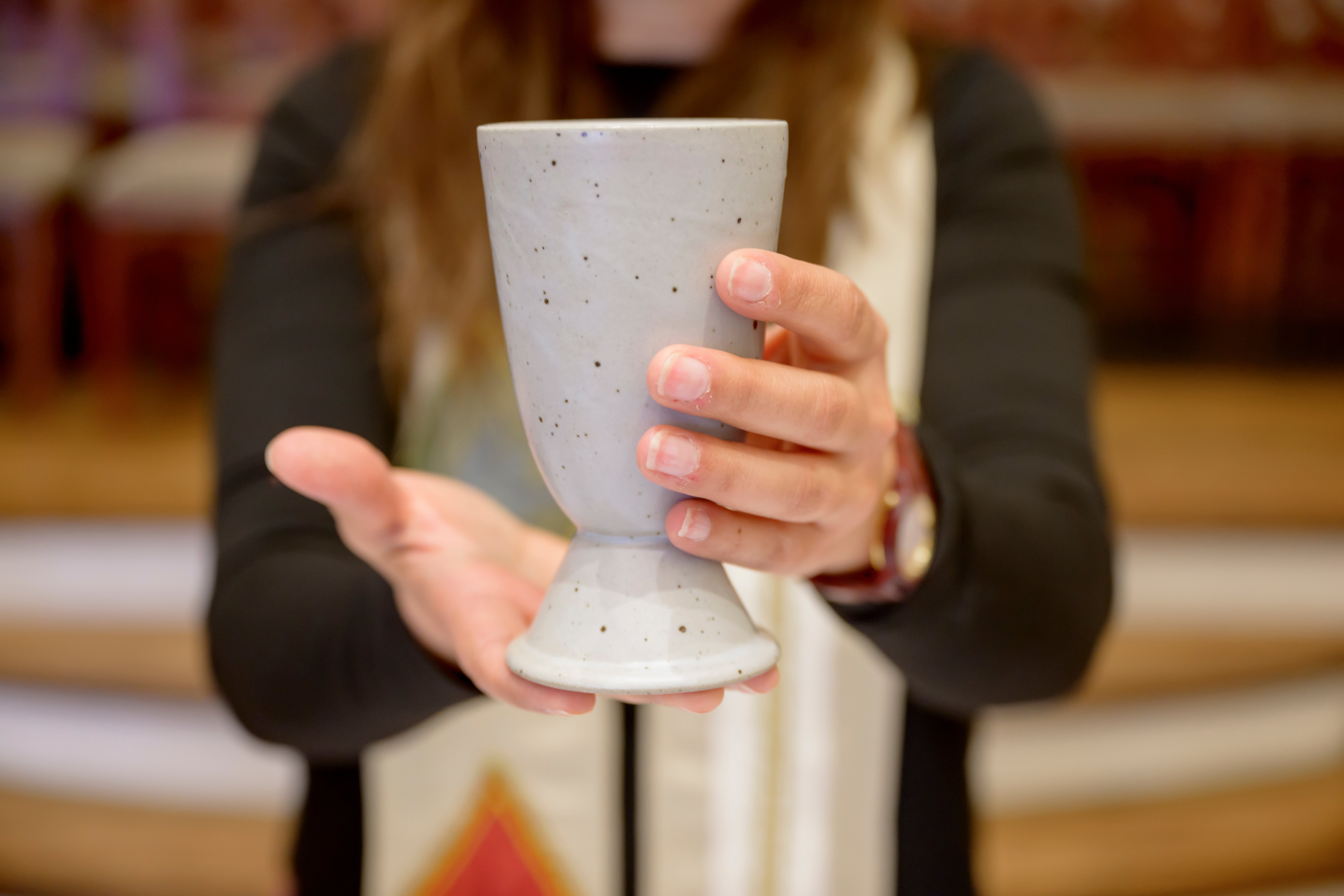Everyone experiences a trying situation or is given a difficult journey at some point in life. Whether it be grief, depression, loss, sickness, loneliness, or a major life transition, everyone knows a season of challenge. People sometimes travel this path alone, without anyone by their side.
Pastoral care is the church’s response to the suffering people experience. Pastoral care goes beyond the regular caregiving church members provide for one another. While the congregation and community can offer support, a seasoned pastor has the training and experience to create space for spiritual healing and guidance.
Pastoral care can take many different forms in various contexts, but it always seeks to meet people at their lowest points and draw them to the mercy and loving care of God. Pastoral care can be offered to anyone. Both members of the church and those outside the congregation are welcome to receive pastoral care. Continue reading to learn more about pastoral care and its role in today’s world.
Explore: Pastoral Care Then and Now
Jesus sets a precedent for pastoral care in the gospels. The story of Jesus healing a paralyzed man in Mark 2 is an excellent example of the importance of discussing faith and forgiveness in the midst of physical suffering.
Paul follows Christ’s example by encouraging the early church to have endurance and encourage one another in Romans 15:5. Pastoral care has always held special importance in Christian communities. The early church was shaped by biblical and theological perspectives of pastoral care, which carry through to today.
Pastoral care today follows in the footsteps of Jesus and the early church by going to the people wherever they need spiritual healing and recognizing that those in need of physical care are also in need of spiritual care. For these reasons, pastoral care extends well beyond the walls of the church. Pastors and caregivers meet people where they are, providing care to people in hospitals, nursing homes, personal residences, and anywhere that someone may reside who wishes for spiritual guidance, prayer, or care.
Although women served alongside men in the early church by providing pastoral care, the tradition of women providing formal, pastoral care was lost for many centuries. Many denominations still bar women from providing this much-needed care as clergy members. The United Methodist Church has ordained women with full clergy rights for six decades, giving women and men the opportunity to serve in ministry and offer Methodist teachings through pastoral care.
Why is Pastoral Care Needed Now More Than Ever?
Today’s world faces family and relationship turmoil, injustices, increased isolation and loneliness, a lack of community, and an overall divide. Social media, the pandemic, heightened political divisions, and increased violence all contribute to suffering occurring in people’s daily lives.
Many people feel like they have no one to confide in. A study published in the American Sociological Review revealed that the average person in the U.S. only has one close friend and one in four people report they have no confidantes at all. Leading close-knit church communities, and offering pastoral care can help people heal and create communal bonds with one another.
The miracles Jesus performed were often about reintegrating isolated people back into society. People who were unclean and couldn’t live freely in society, such as the ten lepers (Luke 17) or the hemorrhaging woman (Luke 8), were ushered back into the Jewish community when Jesus healed them.
A visit from a pastoral care provider follows the example of Jesus. They offer community by their own presence and offer healing rituals so that the isolated individual can enter back into regular society when they are better. The practice of offering Holy Communion during pastoral care visits ushers the individual into full participation with the rest of the church community: the Body of Christ.
Not only individuals, but whole churches can experience hardships. The present-day Church has endured losses in attendance, a clergy shortage, and vacant leadership positions. Although this has been hard on many church communities, there are now many professional opportunities available to those called to provide pastoral care.
Pastoral care can help these struggling communities who feel they have no one to turn to. Even if someone who is hurting is unable to attend worship; even if they haven’t been to church in a while; even if they feel like they’ve neglected or gotten lost in their faith; pastoral care can ease their suffering.
What is Expected of Pastoral Care Practices?
Pastoral care is an essential part of ministry to those who serve in the local church because it provides profound spiritual aid to those who need it most. Pastors, chaplains, and spiritual directors guide people toward Christ’s love and justice by providing emotional, social, and spiritual support for those in need and who may be suffering a crisis alone.
This care and support can come in many forms including:
- Spiritual care. A minister brings relief to the situation by inserting God into the conversation about the person’s suffering and offering healing through sacred rituals. They attend to a person’s spiritual or religious needs as they cope with pain, loss, loneliness, or illness by helping them heal physically and emotionally and regain their sense of spiritual well-being.
- Healing ministry. Ordained clergy in the United Methodist Church may include healing prayer and anointing oil in their worship services, often alongside Holy Communion. Those who can attend worship are invited to heal with others slowly over time. Clergy will offer these same rituals to those who cannot attend at their place of care.
- Trauma Assistance. During times of crisis, pastoral care can rescue people from the cage of their own minds. Although clergy cannot replace licensed therapists, they offer a spiritual lens to discuss the nature of suffering, good versus evil, and healing. Along the road, they offer support, prayer, theological discussion, and spiritual guidance.
- Prayer with and for others. Prayer during times of sickness, hurting, and healing can be extremely powerful and comforting. Pastoral care offers a safe space to pray in community with those who may not be able to physically attend worship.
- Biblical counseling. The stories of biblical families and the teachings of Jesus can be powerful references to strengthen faith, boost spirits, and guide Christian decision-making. Biblical counseling is open to all people whether they want to lean firmly on their faith in a difficult season or they have lost their way and would like to explore a spiritual path moving forward.
- Rituals for Life Transitions. Clergy provide meaningful practices during major life transitions such as baptisms to mark birth, confirmation to mark coming of age, weddings to mark marriages, and funerals to mark deaths. Often these transitional rituals are accompanied by Christian education or counseling.
- Bereavement Consolation. During periods of loss and grief pastoral care can take the form of bereavement services (funerals, gravesides, and memorial services), meeting with people one-on-one or in a group for counseling sessions, or leading spiritual practices for people who are rebuilding their lives in the absence of a loved one.
Each of these responsibilities and duties plays an important role in pastoral care, as pastoral care can serve the needs of many different people, such as:
-
The sick and homebound
-
Those who feel lost or lonely
-
The forgotten and marginalized
-
Those who are grieving
-
People suffering from mental health disorders such as depression, anxiety, or PTSD
-
Those who have been abused, mistreated, or suffered a traumatic event
-
Those who want to strengthen their faith
-
Those who are going through major life transitions
-
Those who have been plagued by the evils of this world
-
The sick and homebound
A skilled pastoral care professional will also recognize when to refer someone to a trained mental health professional with a different skill set.
Some Best Practices for Providing Pastoral Care
When offering pastoral care, you are primarily attending to a person’s spiritual needs, but it is vital to remember that pastoral care seeks to heal a person holistically. God created their spirit, body, mind, and emotions to be interconnected.
Because of this, good pastoral care seeks to ease ailments of the body and mind as much as it does of the spirit. That is why pastoral care teams often visit the ill: to comfort the spirit and provide embodied healing.
When offering pastoral care, remember the ways Jesus provided healing. Jesus took time to prepare himself spiritually before attending to the spiritual needs of others. When he arrived at the scene, he routinely asked people, “What do you want?” instead of assuming someone wanted healing, then he offered forgiveness even as miracles occurred.
When offering pastoral care, follow the example of Jesus by keeping these best practices:
-
Ask what kind of ailment the person is suffering from before you meet. It will allow you to gather the appropriate resources for their situation.
-
Pray a centering prayer before you enter the place of healing.
-
Ask several questions before offering solutions or leading spiritual practices. Listen actively both to the person before you and to the Holy Spirit.
-
Ask permission before giving spiritual care such as prayer, Communion, holy oil, or physical touch.
-
Ask if you can share their condition with other members of the pastoral care team or the congregation. They may desire prayer or visits from others.
Is Providing Pastoral Care the Right Fit for Your Skill Set?
You may be wondering if you should take the next step to provide pastoral care in your church or community. Answer these questions about yourself with a mentor:
- Have you felt God calling you to participate in or lead mercy ministries?
- Do you possess Christian leadership skills that can help spiritually guide others?
- Are you passionate about your faith and living out God’s word?
- Do you have the gifts needed to care for and assist others?
- Are you graced with inner strength and peace during challenging situations?
- Do your spiritual gifts help you mentally and emotionally connect with others in a meaningful and positive way?
- Do you want to help others find peace, hope, and love through God’s word and spiritual guidance?
If you answered to several of these questions, you may consider supporting your ministry by seeking education in pastoral care. You may not have all the knowledge and training you need right now, but that’s okay. God doesn’t call the equipped, God equips the called.
Clergy members and lay leaders can provide pastoral care as pastors, chaplains, spiritual directors, and volunteer care team members. Take your ministry beyond the church walls by getting the right training. Answer God’s call by earning a ministry degree at Perkins School of Theology.
Attend Theology School to Deepen Your Pastoral Care Training at Perkins
At Perkins School of Theology, we are a diverse community that welcomes all Christian voices. Throughout your time at Perkins, we will strive to help you discern, utilize and test your gifts, guiding you and equipping you with the skills needed to practice pastoral care, and answer your call to ministry.
We value your unique path and honor it by offering many different pathways and graduate degrees so you can grow in your vocation. Explore your options by clicking below.
If you’re looking for more guidance, our team is happy and ready to speak to you about your potential new journey. Please feel free to schedule a meeting with us.
Discover and learn more about discerning your call through theology school by downloading our interactive guide, Discerning Your Call to Ministry: Is a Theology Degree Your Next Step?






.jpg)